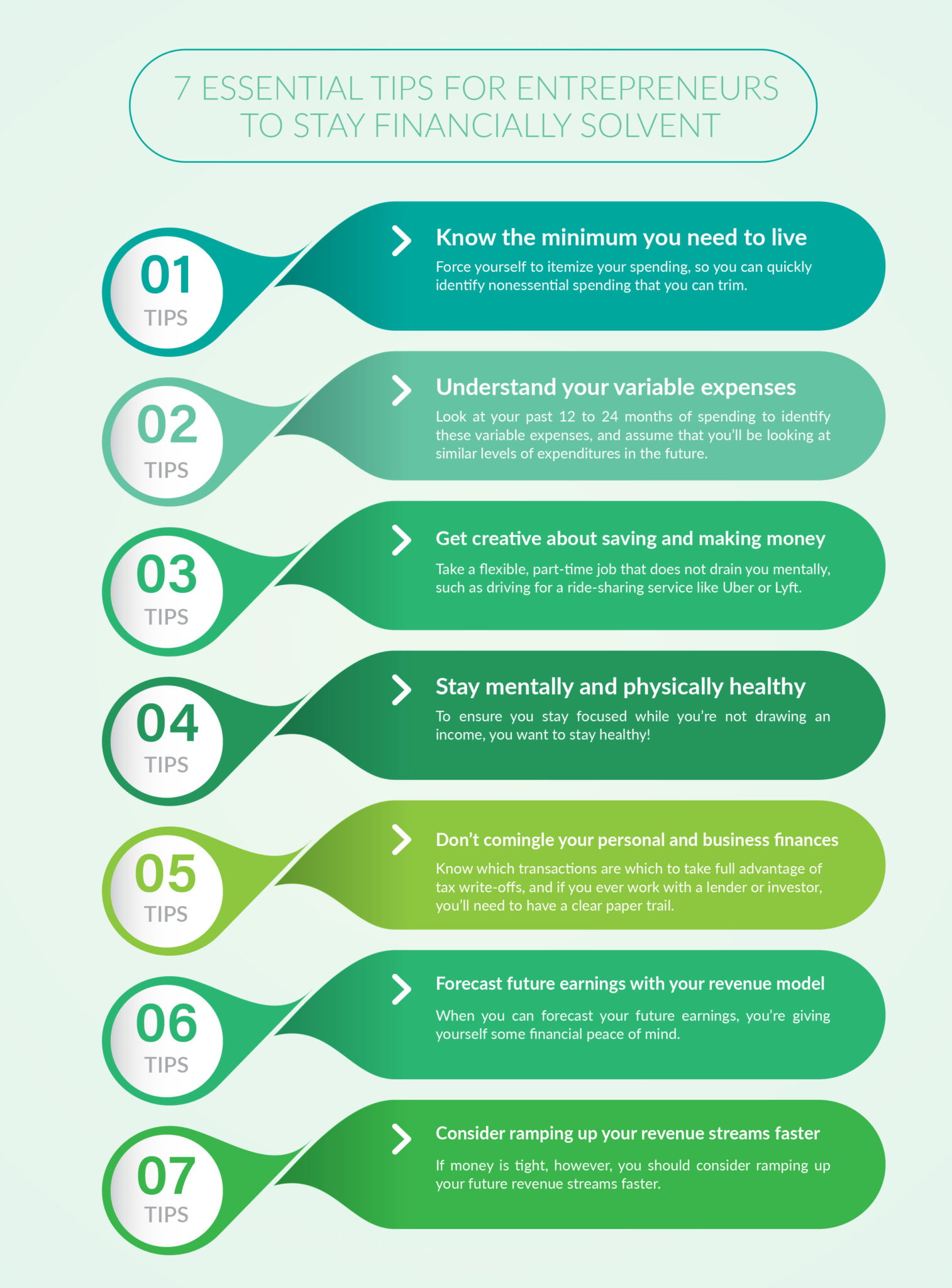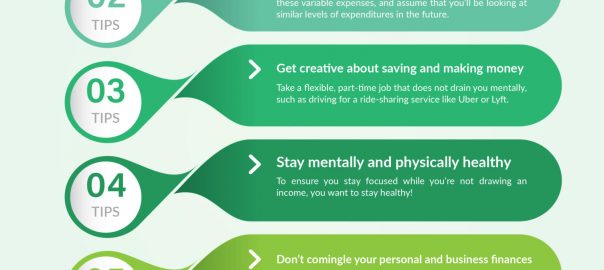Virtually all Americans take on debt, whether in the form of a home mortgage or a car loan or credit cards. And no matter how careful we are to make payments on these loans, our debt remains stressful and worrisome. That’s because we also need to set aside money for our kids’ college education, for our retirement, for utility bills and gas and food, and for at least a few of life’s luxuries. It’s no surprise, then, that nearly half of all Americans say they would struggle to come up with $ 400 to cover an emergency.
While most working Americans can at least count on a steady paycheck to keep up with their mounting debts, one striking exception is with entrepreneurs. Especially when we’re first starting out, most of us cannot count on a paycheck at all. We’re often living off our savings, and that savings typically has already been eroded because we borrowed against it to start a business! “Millions of Americans suffer from the ongoing stress of trying to manage a budget and make sure all their loans and expenses get paid on time,” Matthew Cooper of the personal financial planning company EarnUp recently shared with me. “It’s an American rite of passage.” This is why I believe so many people sit back and think “I wish I could start my own company” or “I’ve always wanted to start my own company.”When I started my company,
When I started my company, M3JR Growth Strategies, about nine months ago, I was one of the rare exceptions who started out with a cash infusion from paying customers. To date, I have not had to use a single dollar of my own personal money! Nevertheless, you can only stretch a dollar so far when you are replacing a corporate VP of Sales position, you are the sole provider for your family, and you are trying to grow and scale a business! I always have said, “All good things come to an end.” In fact, the only assurance I had about my financial stability was my unwavering drive and passion for my business. Fortunately, my startup quickly took off. In just the past few months, M3JR Growth Strategies has been featured in Forbes, Inc., Business Innovators, and elsewhere.
Many who have read about my sales and social selling training and coaching business have contacted me to ask for advice on how to navigate the financially perilous life of an entrepreneur. I am using this post to share my best advice; I also spoke with Matthew Cooper and Nadim Homsany from EarnUp to get their input. Together we developed these 7 entrepreneur tips for those just starting out to help them stay financially solvent.
- Know the minimum you need to live: To ensure you can stay afloat financially without any income, it’s crucial to know how much money you actually need to live. An app like EarnUp can help you to create an accurate tally of your monthly expenses and loan payments. When you force yourself to itemize your spending, you’ll also be able to quickly identify nonessential spending that you can trim. If you can live on your minimum budget, you can accurately project exactly how many months or years you’ll be able to live off your savings while you’re building your business.
- Understand your variable expenses: While you can easily identify fixed expenses like a mortgage, car payment, or internet bill, you also want to have a strong pulse on your variable expenses, such as car maintenance and repairs, clothing purchases, and gift-buying for birthdays and special occasions. You should look at your past 12 to 24 months of spending to identify these variable expenses and assume that you’ll be looking at similar levels of expenditures in the future. “Today, technology can give everyone the simplicity of having someone manage and optimize loans for you, which is a service that has historically been reserved for the super wealthy,” Cooper from EarnUp shared with me.
- Get creative about saving and making money: For most Americans, their biggest expense is their home. Consider downsizing and/or moving in with parents or other family. You could even turn your home into an income-generating property, such as renting out a bedroom to a foreign-exchange student or on a website like AirBnB. If modifying your living situation is not an option, you could take a flexible, part-time job that does not drain you mentally, such as driving for a ride-sharing service like Uber or Lyft.
- Stay mentally and physically healthy: Leaving the security of a job that provides a steady paycheck is challenging and stressful. To ensure you stay focused while you’re not drawing an income, you want to stay healthy. Your penny-pinching lifestyle should not come at the expense of failing to eat right, and your dedication to your business should not preclude you from getting sufficient sleep and exercising regularly. This is an area I really need to work on!
- Don’t comingle your personal and business finances: Although many entrepreneurs will invest financially in their business endeavors, it’s crucial that you keep the financial records of your business completely separate from your personal finances. You need to know which transactions are which to take full advantage of tax write-offs, and if you ever work with a lender or investor, you’ll need to have a clear paper trail.
- Forecast future earnings with your revenue model: As your business starts to generate money, you need to know what kind of salary you realistically can be expected to draw. Your business’s revenue model is key to understanding how much you will be able to take home at six months, one year, two years, and so forth, after paying your employees, vendors, overhead, and other expenses. When you can forecast your future earnings, you’re giving yourself some financial peace of mind.
- Consider ramping up your revenue streams faster: When entrepreneurs develop a business plan, they typically forego paying themselves a salary in the early stages so they can invest in the business’s long-term growth trajectory. If money is tight, however, you should consider ramping up your future revenue streams faster. For example, perhaps there are some “low-hanging fruit” earnings opportunities that you can immediately tap into, even if they may distract or take a bit away from your long-term earnings potential.

When you’re first starting out as an entrepreneur, you want to do everything you can to maximize your chances of survival. These entrepreneur tips are priceless in helping you achieve your goals. To maintain your financial solvency during this challenging time, you should calculate the absolute minimum you need to live on, be prepared for variable expenses, get creative about saving and making money, and stay healthy. Furthermore, you should avoid co-mingling your personal finances with your business finances, use your business revenue model to forecast your future earnings, and consider ramping up your revenue streams faster to cover any financial shortfalls. Your entrepreneurial success depends on it!
Business & Finance Articles on Business 2 Community(89)
Report Post





